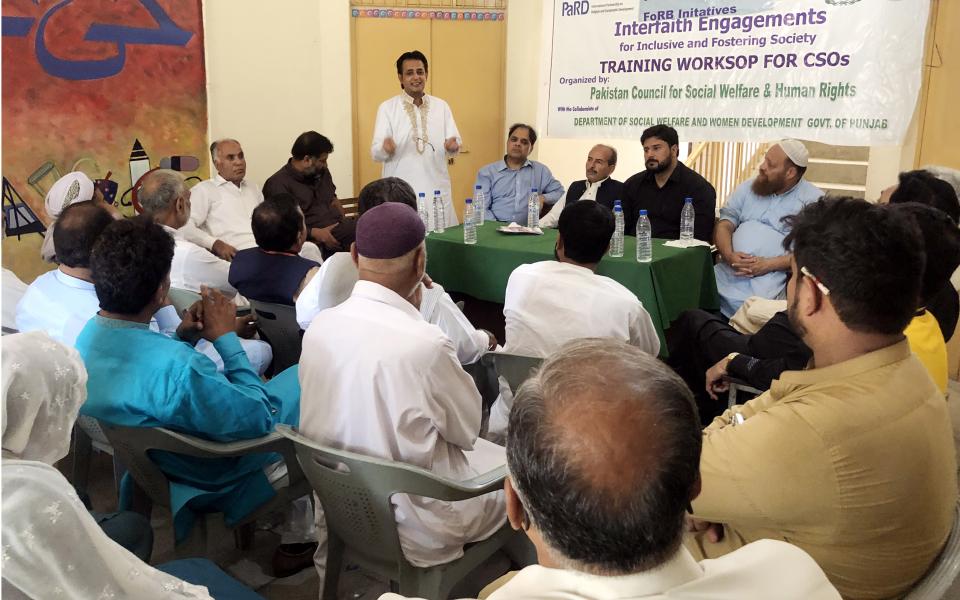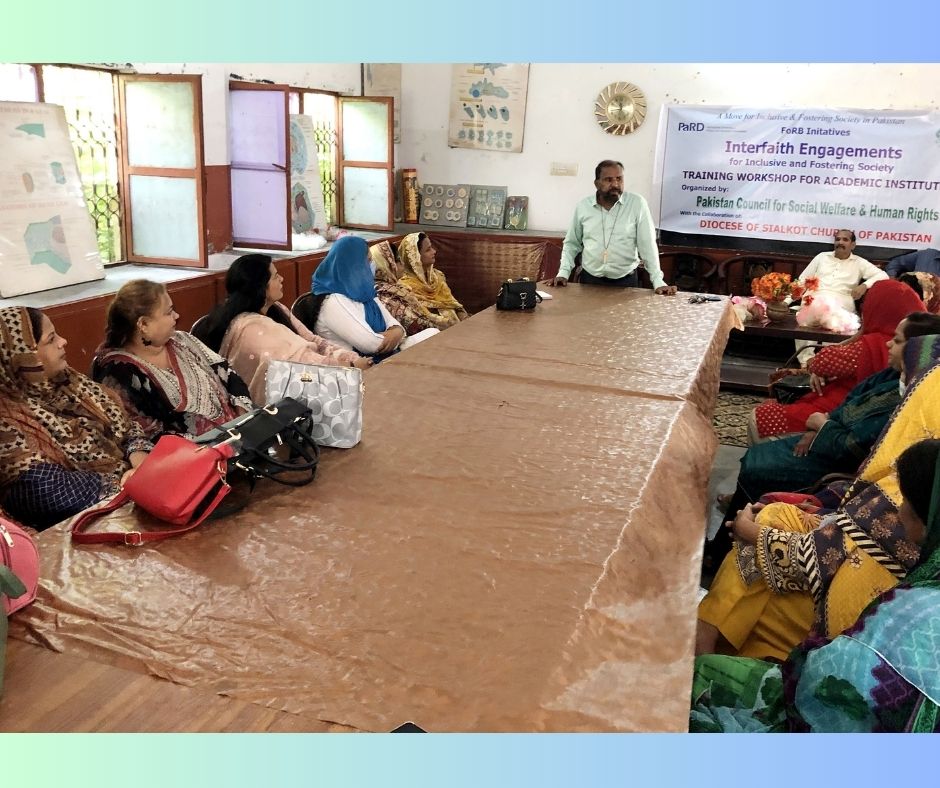
“Interfaith Engagements for Inclusive and Fostering Society,” a joint 3 month program in Sialkot, Punjab, Pakistan, was organized by a URI Cooperation Circle, Pakistan Council for Social Welfare and Human Rights (PCSW&HR) in collaboration with the International Partnership on Religion and Sustainable Development (PaRD), Freedom of Religion or Belief (FoRB).
Aiming to promote the United Nation’s Sustainable Development Goals, the program engaged hundreds of adult men, women, and youth from different sectors of society including priests, imams, youth groups, university professors, senior teachers, media representatives, members of civil society organizations, and religious activists.
Training included: voter education and political empowerment for religious minorities; cooperation skills to enable problem solving and interfaith harmony; and, a motivational campaign involving school children in a tree plantation drive to increase environmental resilience.
To sustain this work into the future, 10 groups were formed to engage local communities in: building interfaith harmony, identifying, and resolving local problems, preventing conflict, respecting religious co-existence, and the freedom of religions & beliefs.

A post survey indicated that participants deepened their capacity and commitment to work for human rights and human dignity. A few participants share their views:
Although different from each other, every religion, culture, creed, and belief need the same amount of respect.
Rt.Rev.Bishop Alwin John Samuel, Bishop of Sialkot, Church of Pakistan participant in training for academic Institutions
“ Work to decline poverty is not a gesture of charity. It is an act to protect the fundamental right of decent living”
Muhammad Farouk Khan Advocate participant in the training of civil society organizations
“Gender inclusion to reduce discrimination is not only beneficial for females but also their communities”
Professor Sajad Haider, a participant in teacher training
For more information see the project report below.
